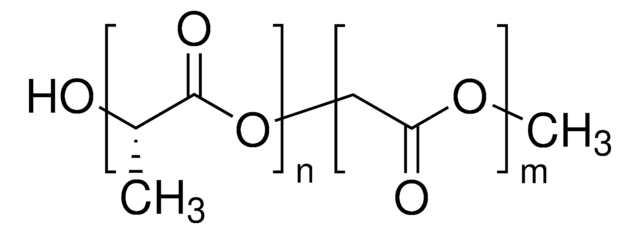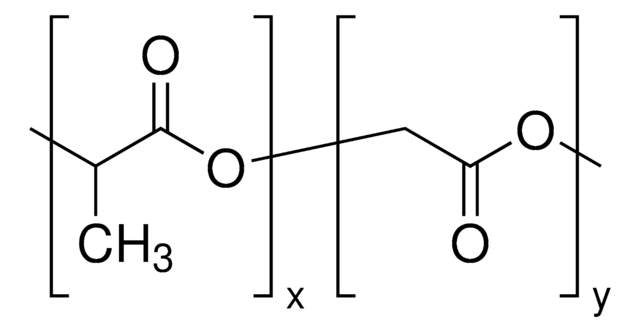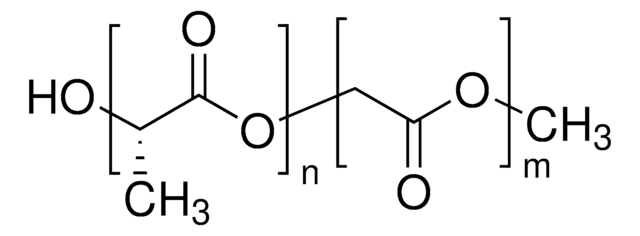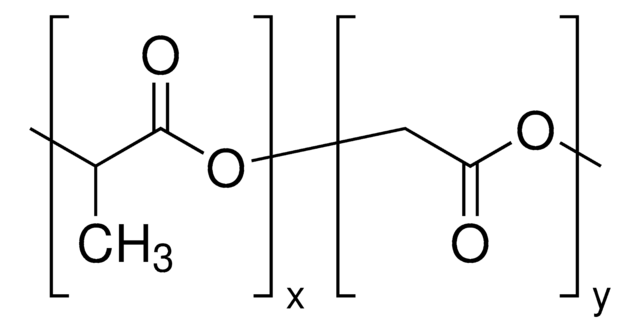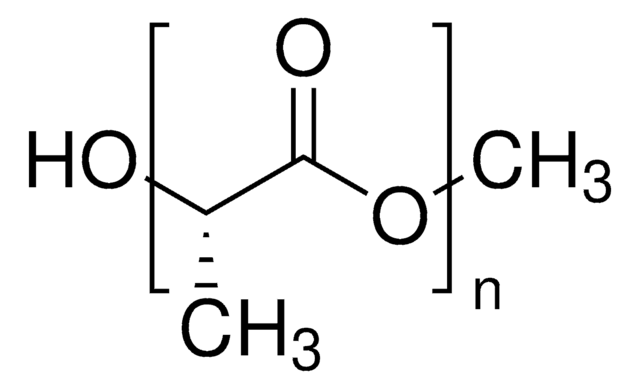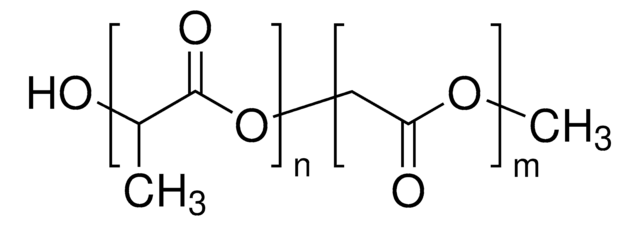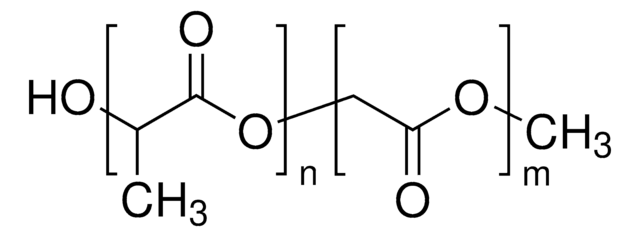739979
Resomer® RG 858 S, Poly(D,L-lactide-co-glycolide)
ester terminated, lactide:glycolide 85:15, Mw 190,000-240,000
Synonym(s):
PLGA
About This Item
Recommended Products
Quality Level
form
amorphous
feed ratio
lactide:glycolide 85:15
mol wt
Mw 190,000-240,000
degradation timeframe
<9 months
viscosity
1.3-1.7 dL/g, 0.1 % (w/v) in chloroform(25 °C, Ubbelohde) (size 0c glass capillary viscometer)
storage temp.
2-8°C
SMILES string
O2C(C(=O)OC(C2=O)C)C.O1CC(=O)OCC1=O
InChI
1S/C6H8O4.C4H4O4/c1-3-5(7)10-4(2)6(8)9-3;5-3-1-7-4(6)2-8-3/h3-4H,1-2H3;1-2H2
InChI key
LCSKNASZPVZHEG-UHFFFAOYSA-N
General description
Application
Features and Benefits
Legal Information
related product
Storage Class Code
11 - Combustible Solids
WGK
WGK 3
Flash Point(F)
Not applicable
Flash Point(C)
Not applicable
Choose from one of the most recent versions:
Already Own This Product?
Find documentation for the products that you have recently purchased in the Document Library.
Customers Also Viewed
Articles
Interest in utilizing biodegradable polymers for biomedical applications has grown since the 1960s.
Synthetic aliphatic polyesters dominate resorbable biomaterials in clinical use.
Synthetic aliphatic polyesters dominate resorbable biomaterials in clinical use.
Synthetic aliphatic polyesters dominate resorbable biomaterials in clinical use.
Our team of scientists has experience in all areas of research including Life Science, Material Science, Chemical Synthesis, Chromatography, Analytical and many others.
Contact Technical Service
